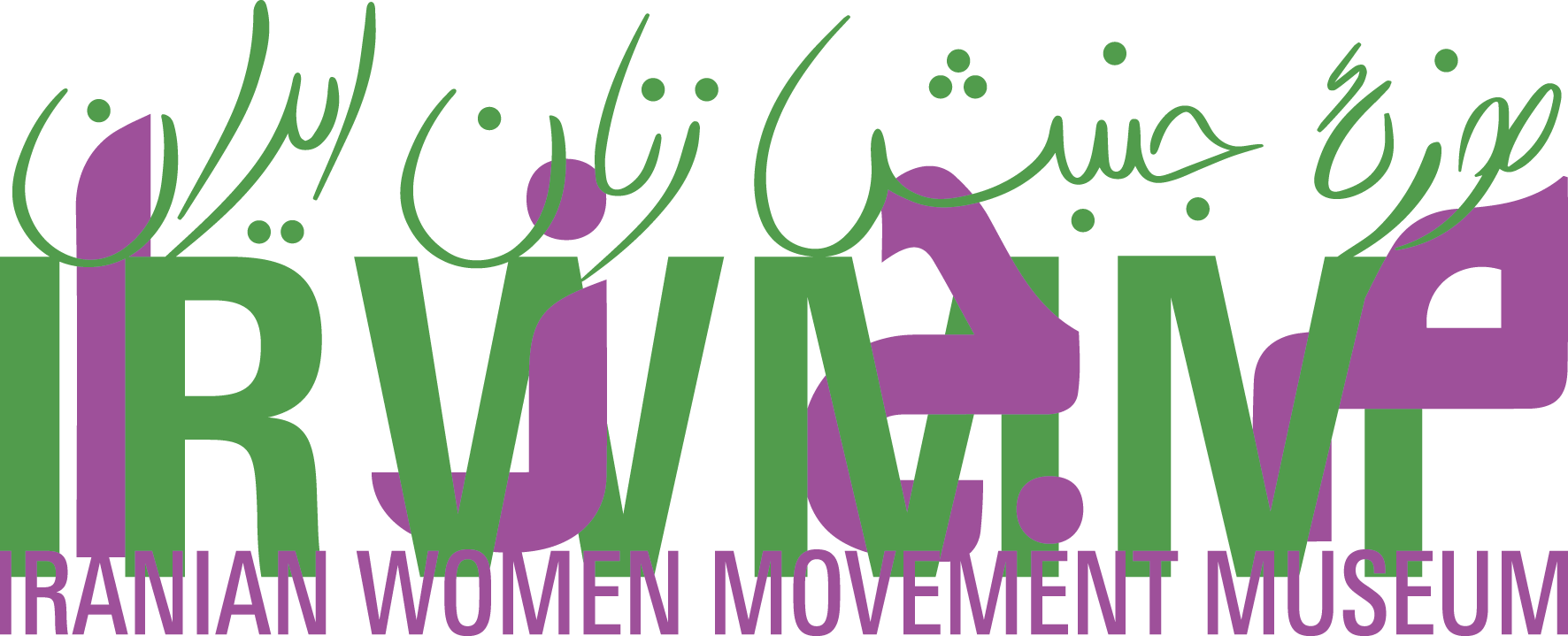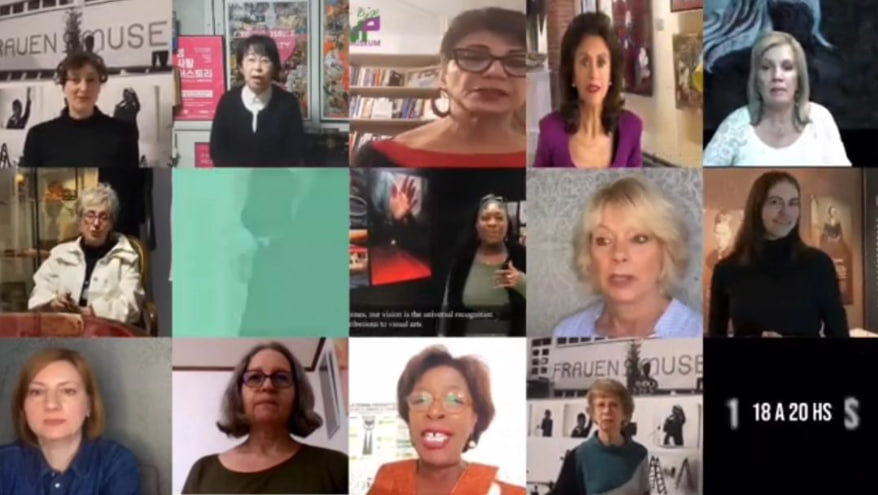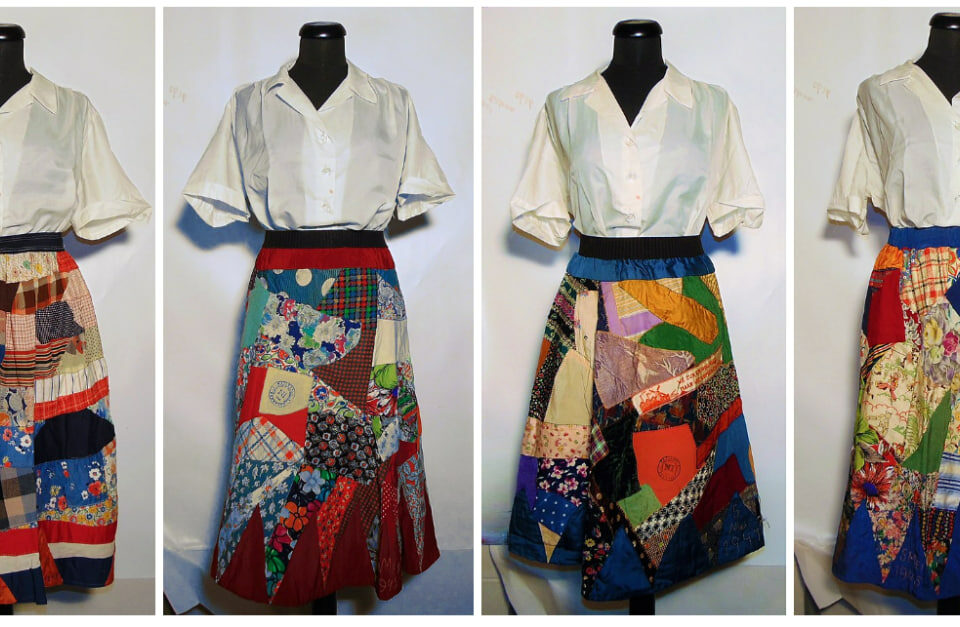The first official letter from the International Women’s Museum Network to Iran
December 12, 2009The first image report submitted by the Women’s Movement Museum to the Global Network of Women’s Museums, to be exhibited on in 2008. The network is currently registered as the International Association of Women’s Museums in the European Union and has 26 members. The Iranian Women’s Movement Museum is also an official member of this network.
Translated by :Mina Zandi /Photos: Ali Golshan and Massoud Naseri
Sunday 27 September 2009
Feminist School :The following article appeared in Persian for the first time on the occasion of International Workers Day- May 1st, in order to point out on a group of women who receive no wages and bonuses, who carry out tiresome work and then was used as a part of the exhibition of Iranian Women’s Museum in Bonn on September 2009.
The Women of Minab’s Bazaar :
The goats (Kohres)(1) were brought to the market. They were not there to be sacrificed (Zar)(2) but to be sold. The place was the Minab Thursday Bazaar.
There was soil but no moisture. There was cattle but no grass, there was dust but no horsemen. But … the dangling of the ankle bracelets (Khalkhals) with the soft steps of the women and the wind, the shy but proud gliding of these tall pine-like shadows are the testimony to the presence of women who are there trying to sell a few of the goats from their not such a big herds. They do not expect any horsemen to come to their rescue.
Faces covered behind colourful burqas, these capable women, with their melodious and gracious steps, bestow honour on the hard land over which they walk. Although their precious value to this land is not acknowledged, the blissful presence of these women, villagers and dwellers of the out lands, and their return from the market is expected at their home and nest every day, so that with their magical hands they would fill their families’ empty kitchens, to feed their husbands, their children, their husband’s children and sometimes even their husbands’ other wives.
Home page > Articles > The Women Goat sellers of Minab: Workers? Sheppards? Wives? Mothers?….. (…)
The Women Goat sellers of Minab: Workers? Sheppards? Wives? Mothers?….. /Mansoureh Shojaee
Translated by :Mina Zandi /Photos: Ali Golshan and Massoud Naseri
Sunday 27 September 2009
All the versions of this article: [Deutsch] [English]
Feminist School :The following article appeared in Persian for the first time on the occasion of International Workers Day- May 1st, in order to point out on a group of women who receive no wages and bonuses, who carry out tiresome work and then was used as a part of the exhibition of Iranian Women’s Museum in Bonn on September 2009.
The Women of Minab’s Bazaar :
The goats (Kohres)(1) were brought to the market. They were not there to be sacrificed (Zar)(2) but to be sold. The place was the Minab Thursday Bazaar.
There was soil but no moisture. There was cattle but no grass, there was dust but no horsemen. But … the dangling of the ankle bracelets (Khalkhals) with the soft steps of the women and the wind, the shy but proud gliding of these tall pine-like shadows are the testimony to the presence of women who are there trying to sell a few of the goats from their not such a big herds. They do not expect any horsemen to come to their rescue.
Faces covered behind colourful burqas, these capable women, with their melodious and gracious steps, bestow honour on the hard land over which they walk. Although their precious value to this land is not acknowledged, the blissful presence of these women, villagers and dwellers of the out lands, and their return from the market is expected at their home and nest every day, so that with their magical hands they would fill their families’ empty kitchens, to feed their husbands, their children, their husband’s children and sometimes even their husbands’ other wives.
I had seen these Thursday Bazaars many times before(3). The colorful hand-woven baskets, and Sorkh Souragh (a local food make with fish and spices) and red burqas, reveal the poverty, hardship, and this unbearable life for a little while. I could hear the sea waves as if coming through the reeds … the puckered pleaded of the Persian Gulf waves carry the not so pleasant odour of fishy Souragh … and one would hear the sea’s recitation of secret mysteries behind the burqas which appear more beautiful than those sea-stricken eyes hidden behind them.
But the story of the bazaar of goat-selling women was a different story …. Hot burning winds, as if Zar is arriving, was breaking the reeds, moving away the sea. The Kohrehs were panting as if worried about being sacrificed in the Zar’s sink(4). Terror would creep into their hearts, the reeds would drum in misery, women were worried that the goats to be forgiven and their blood would be spared and their dinner mat would remain empty. And all waiting, as if …
It was certainly the Thursday Bazaar of the goat-selling women of Minab.
How many goat did you sell since this morning?
Not bad, five or six.
How much for each?
Male goat for sacrificial ceremony 40 toman each, and female goat 60 Tomans …
Are you happy with it?
Not bad, it is good. -What does you husband do?
Shepherding.
How many kids do you have? -Mine are five.
Are there any which do not belong to you? Are there any other wives beside you?
There are two other wives and their children.
Aren’t you upset? -What can I do?
Could you afford it?
Not so easily.
Then why did your husband remarry?
I, myself, am the third wife.
Why do you have so many children?
My husband would not stay with me if I would not have them.
Do you have only one this goat for sale?
Yes, I have bought this so I can sell it till noon and then go….
Where did you buy it?
From the village.
How much would you make buy selling it?
10 – 15 Tomans.
Are you married?
Yes.
What does he do?
School janitor. He salary is very low, we barely can make living with it. If they would give us some pay raise, we would not suffer this much.
Do you have any children?
Yes, we have two.
Then, as long as the situation is like this, at least do not try to have more kids…
I don’t have a daughter, I have two sons, I would like to have a daughter.
Does your husband want that too?
Yes.
Does your husband have another wife?
No, thanks Heaven, he is not like that.
Do you do anything else besides selling goats?
I work a lot.
Where?
At home in the field …
But that work won’t bring you any income … so you work only here?
I do not work here, I just sell goats … [!]
How many goats have you sold since this morning?
Two.
How many are left?
None. This one belongs to my son.
Is you son here too?
Yes.
Why doesn’t he come and sell it himself?
He does not know how to do it yet.
Does it require some skill to sell a goat?
Yes, it takes time to learn.
How old is he?
24
Why doesn’t your husband come?
He is not able to do this job.
Does he have another wife?
Well, yes.
Why?
These men, well, they like to have many wives.
In your opinion, how could we tell them that they should not remarry?
Well, the government allows them to remarry; it is lawful…
Now we want to tell the government to make it a law to stop them.
The government people themselves want it … How could you stop them?
Where is your husband?
He is sick.
The children?
They are not here.
Is your husband alone?
No, his wife is with him.
Then you?
…………
Why did your husband marry?
Well, men like it that way.
Didn’t you object?
Well, no.
Aren’t you upset?
No, I got use to it.
To what?
……………..
Would you prefer he hadn’t remarried?
Well, of course.
Would you like there to be a law to keep him from remarrying?
Well, of course.
Where is your husband?
At home.
Why doesn’t he come here?
This is not for him, he is not able to do this job.
What about the kids?
They are in the field …
Where is your husband?
Sea work (5).
The children?
They are at home.
Are they too young?
Yes.
Did you leave them alone?
No …
With your mother?
No.
Neighbours?
I left them with my husband’s wife.
Is she helping you?
Well, yes. I help him too.
Do you like her?
…………
What about your husband? Do you like him?
Not really, he is whimsical and lustful.
How could we stop them?
Passing a law that they cannot have more than one wife.
Does anybody bother you here? -What for?
Well, you are a woman here, alone, selling two goats.
Everybody’s selling goats here.
Don’t men bother you?
They don’t dare.
Aren’t you married?
No, he is dead.
You are too young, Didn’t you marry again?
No, my father is still alive.
Does your father sell goats too?
No. He is old and sick. I bring the goats here.
Who takes the goats to the field?
I take them.
When you come to the city then, who takes them to the field?
Those days I ask someone else to do it for me.
Your brothers?
No they are in sea work business. (fishing as well smuggling)
Domestic workers? Desert workers? Wageless workers? Farmers? Shepherds? Dealers? Mothers? Wives? Second wives? What can we call these unknowns who are the source of pride for life? A mixture of the most primitive form of life and culture on one hand, and the laws which are even way behind culture on another, the description of deprived class, of our citizens.
They do not even own a herd. They are either poor dealers that make their living by selling one or two goats each week, or the caring shepherds for their husbands or their sons’ herds. They live humble and modest lives without any claim or rights over anything, until the day that by losing one them, they would be left even without these meagre means, poor and without even any shelter, though still, very proud, serene, and loving.
Now, it is unavoidable that these shepherdesses of the desert drum the reeds to their own body and ask their government to put an end to their husbands’ lustful way of life, though that government itself is riding on the black winds of male chauvinism. It seems the time has come that these faithful dwellers of the southern shores defy the riders of the black wind of Nobans (regional gusty wind) to demand some share in the little goods and herds that their men leave to their care when they depart for their sea voyages. It seems it is time these women to demand fairness and equality from the government which in a manly fashion, distributes unequally.
In any case, these were the women goat sellers of Minab … the women who willingly smeared their pain-stricken fingers with ink to place it under the petition which echoes their plea for justice to be heard by those who are not so willing. These women who do not own anything in life, but on whose shoulders all of life rested, those who sooner or later, would vanish, are now raising the sacrificial goats for the Zar basins.
Footnotes:
1 Kohreh in local dialect is goat
2 Zar an illness a goat is sacrificed for treatment of the illness
3 Women’s Thursday Bazaar in Minab/ Mansourh Shojayi. www.iftibune.com
4 Zar ceremony: sacrificing a goat and collecting the blood in a large pot and the ill kneel down and drink the blood.
5 Sea work: in Hormozgan region that consists of anything from fishing to smuggling.















